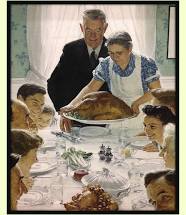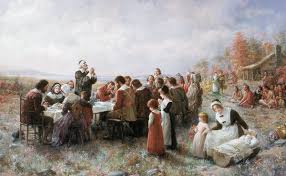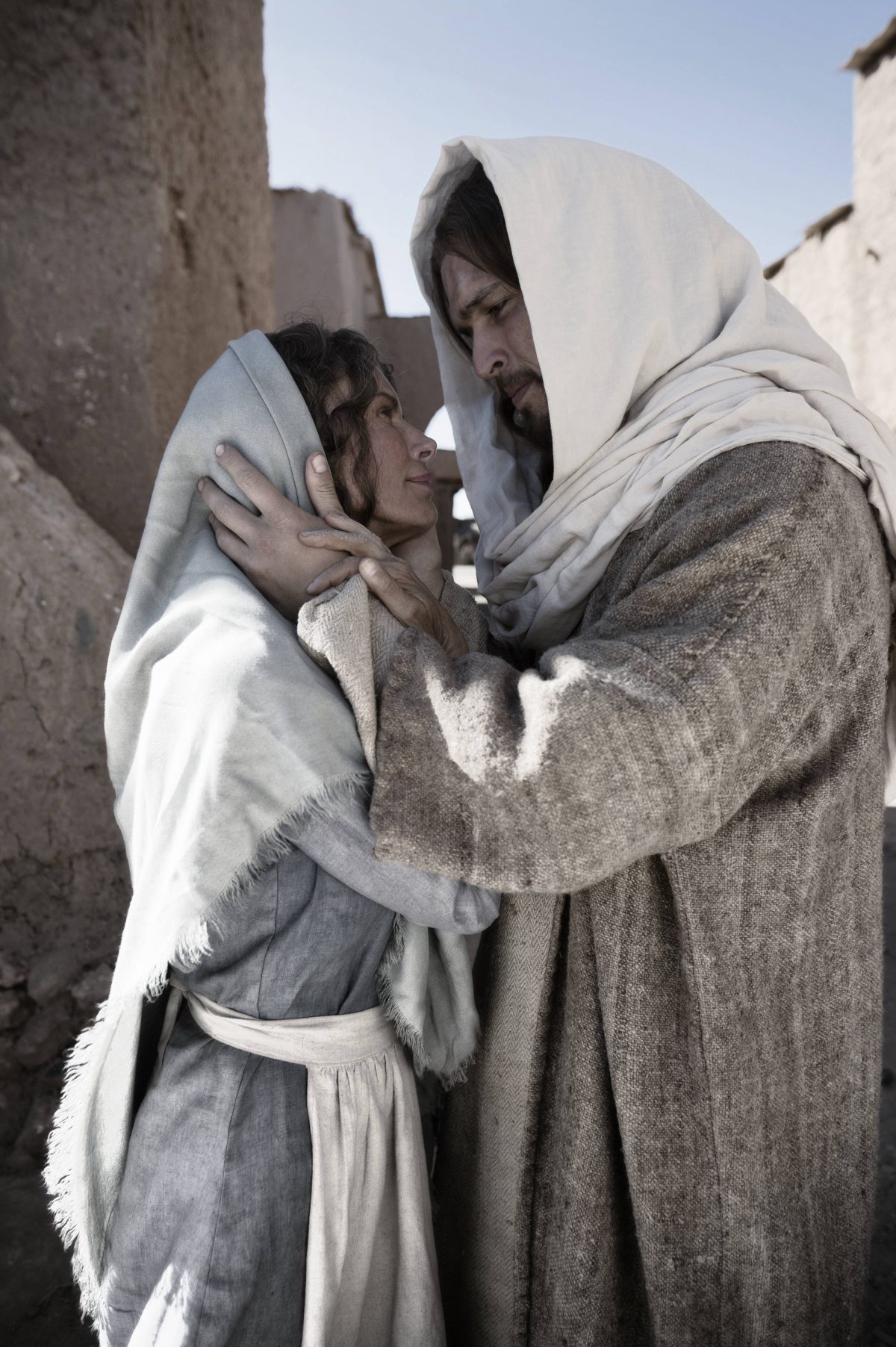Background Passages: Luke 1: 26-38; Luke 1:46-55; Luke 2:22-40; John 2:1-12; and John 19:25-27
Mother’s Day lies just around the corner. I’m reminded of words spoken by the late Dr. Billy Graham speaking to the unique opportunity God gives women to influene and impact the lives of others in ways that few men can.
“There is nothing in this world more personal, as nurturing or as life-changing as the influence of a righteous woman.”
Don’t get me wrong, I’m not minimizing the man’s role in God’s world. When men allow God to rule their lives and women live out their call to righteous living there is a divine balance that makes the world a better place.
However, as most of us blessed with wonderful mothers can testify, Dr. Graham’s statement rings with the peal of abiding truth. I have felt it in my own life. The righteous influence of godly women…a wife, a mother, aunts, Sunday School teachers, public school teachers and countless friends…absolutely shaped and molded who I am, spiritually, professionally and personally. A new generation of women, led by my two amazing daughters-in-law, continue to teach me the things I need to know about being the man God needs me to be every day.
As I think of the women who influenced my life, I realized how blessed I am to have known so many women who believed in me. Women who supported me. Women who propped me up when I stood on the edge of failure. I think of the women who lifted me up at some point in my life with their presence…their words…their friendship…their touch…just when I needed to hear or feel it. Their influence is a tremendous gift in my life!
I’m convinced God placed these women in my life for a reason. Their influence in my life shifted from the piddling to the powerful because they live each day as righteous women.
So what does it mean to be a righteous woman of influence?
Of all the women of influence in the Bible I point you to Mary, the mother of Jesus. We, Baptists, fail to give Mary the credit she deserves for her unrecognized impact on Jesus’ life. Mary wasn’t perfect. She didn’t walk around with a halo above her head. She was certainly more than a simple vessel God used to carry his Son. To better understand Mary’s role, embrace the humanity of Jesus.
Let me explain. We tend to think of Jesus in the divine. We casually recognize his humanity, but we want to color it heavily with his godliness. We like to think Jesus was pulled from the womb without crying, speaking King James English and turning water into milk.
We don’t think of him as a baby with colic, crying through the night. A toddler who fell and bumped his head on the table Joseph built. A three-year-old disciplined for taking a toy from his little brother. We don’t think of him as a little boy scraping his knee while chasing a friend. As a teenager who thought that little Jewish girl down the street was pretty. We never consider that as a young, apprentice carpenter he one day bashed his thumb with a hammer, biting back the ugly word you and I might say.
If he came into the world to be like us, we have to embrace his human side…acknowledging the perfect way he dealt with all those very human situations. If we can fully accept Jesus’ humanity, that part of his personhood had a very human mother…one amazingly normal, human mother. The mother who lost it at times because she was up three nights in a row with a squalling baby. The mother who swatted the hand of a three-year-old for taking his brother’s toy. The mother who looked at that pretty little Jewish girl as a threat to her son. The mother who kissed the scraped knees and laughed at her son when he swallowed that ugly word after bashing his thumb.
If Mary was an ordinary, very human woman, why did God choose Mary to be the mother of his only begotten son? Why was she so “highly favored?”
I think God chose Mary because he knew the person she was. Knew the kind of mother she would be. God chose Mary because he knew she would love Jesus unconditionally. Knew she would teach him about life and model everything good in it. God chose Mary because she would stand beside him in the darkest hours of his life. He chose Mary above all others because she possessed the mother’s instinct to raise Jesus with the spiritual and moral integrity to tackle the mission God planned for him as the savior of the world.
God chose Mary because she lived as a righteous woman of influence.
Mary’s story begins in bizarre fashion. Not every woman could handle the news she heard. Mary possessed the spiritual depth to believe an implausible message.
It is one thing to accept the unlikely future while the angel speaks. It’s another thing to stay faithful when the angel disappears in the darkness. The rational side of Mary knew her pregnancy would bring a host of life-altering issues…ridicule and disgrace…embarrassment to her family…Joseph’s anger. What strikes me most about Mary’s response to the unexpected visit from the angel is that, in the end, she submits to the will of God with such obedience and trust. She said in response to all she heard,
”May it be to me as you have said.”
What an amazing moment of faith and obedience! Despite knowing the difficulties this decision posed in her life, she allowed God to work his will. How often do you think Jesus heard this story as he was growing up? Imagine the lesson of obedience and faith it taught him.
Still, like the disciples and like us, Mary struggled to understand God’s way of working out his redemptive plan. Her understanding of “Messiah” did not contemplate a tragic death. Though she heard it in the temple when Jesus was born, she did not anticipated a “sword would pierce her soul.” Even though she didn’t have Jesus all figured out, she grappled with the unknown, trusted God, and remained faithful to his call on her life.
More than once we see where Mary “pondered in her heart” all that happened around her. She did more than simply deliberate the meaning of a word or event. Rather, she watched, listened and thought about all that happened around her and her son in light of the message from the angel that night, in light of the words from the rabbi and prophetess in the temple. She constantly made the connections, determining how she could help make God’s plan come to pass in the life of her son. Not content to just let life happen, she laid the groundwork needed to bring it to pass.
At some point in Jesus’ life, Mary’s faith, obedience and trust, stood out as an encouragement to Jesus when he was struggling to follow God’s plan. Can’t you almost hear Mary’s words whispered in the Garden of Gethsemane as Jesus agonized over his impending death on the cross? I believe at such a time, Jesus recalled the words of his mother when she told the angel, “May it be to me as you said.” His prayer says, “Not my will, but yours…” the essence of obedience and trust…Mary’s model of faith that carried him through his most difficult times.
To be a woman of influence requires obedience to God and trust in his plan for your life.
GROUNDED IN AND GUIDED BY SCRIPTURE—MARY’S SONG
We encounter Mary again in scripture when she visits her aunt, Elizabeth. After they share each other’s miraculous stories of God’s blessing, Mary sings a song from her heart. Find in the words of Mary’s song the boldness to call for God’s justice in an oppressive, unjust world. Find in Mary’s song, the words and deeds of Jesus. She sings from Old Testament scripture, the traits of a living God:
“…you are mindful of me in my humble state…” Look at Jesus’ own humility before God.
“…scatters the proud…” Look at Jesus’ challenge to ritualistic faith of the Pharisees.
“…lifts up the humble.”… Look at how Jesus work so fervently for the poor and needy.
“…fills the hungry…” Look how Jesus fed the multitudes both physically and spiritually.
“…he is merciful…” Look how Jesus offered mercy to those who did not deserve it.
This was the image of God that Mary carried in her heart. Things she learned from scripture before the culture really allowed women to study God’s word. She internalized scripture she read or heard to the point where it shaped her life and ultimately the life of Jesus. That was the God she knew. That was the character of God she taught God’s son. I can imagine Mary singing her song to Jesus every night as she laid him in bed as a child, a poignant lullaby…embedding those godly virtues into his very being. Modeling it for him every day. In the end, her influence contributed to his role as the servant Messiah.
To be a righteous woman of influence ground yourself in scripture. Let it guide your actions. Share its meaning with those you love. Live out its lessons as you tend to the needs of others.
ENCOURAGING THE READY…THE WEDDING
We see Mary at the wedding in Cana. Mary tried to work through a potentially embarrassing situation when the host family ran out of wine. She brought the problem to Jesus.
Why would she do that? Jesus even asked her, “Why are you bothering me with this? My time has not come.” My mind sees Mary looking deeply in the eyes of Jesus without saying a word. Never taking her eyes off his, she spoke to the servant beside her, “Do whatever he says to do.” The twinkle in her eye and the crooked smile on her face signaled her belief that Jesus would do the right thing…every time. Her trust in him full and complete. That one look gave Jesus permission to be who he was intended to be. It is as if she were saying, “Now is as good a time as any, my son. I don’t need you as much as the world needs you. What are you waiting for?”
A woman becomes a righteous woman of influence by playing the role she plays…recognizing when it’s time to push the bird from the nest. Knowing when a simple word of encouragement to someone convinces them it is time to get started doing what God called them to do…time to take that leap of faith. Letting them know, “This is your time.”
DEEPLY LOVING AND BEING DEEPLY LOVED
The most endearing and enduring passage concerning Mary takes place at the foot of the cross. Scripture paints a vivid picture of a mother watching the son she raised and loved dying an agonizing death on the cross. A death she could not comprehend. Only a mother who lost a child can begin to fathom the emotional suffering Mary experiences as she hears his ragged breathing. Sees the pain etched on his features. Watches his life flow out with every drop of blood spilled on that rocky soil.
The words of Jesus from the cross whispered to John and Mary tell us everything about Mary’s influence on Jesus. “Behold your Mother.” “Behold your son.”
Jesus’ loved his mother so deeply he could not let death take him without ensuring that Mary would never be alone. Jesus recognized through his own pain the deep sorrow of one who loved him. Surely, while on that cross, there were flashbacks to every embrace, every kiss, every smile. Jesus hung on that cross, feeling like God had abandoned him, looking down on a mother who never could. A mother whose love was endless.
You become a righteous woman of influence when you love others so deeply that you are deeply loved in return.
My mom passed away 20 years ago. I cannot explain the magnitude of her impact on my life…my understanding of who I am…how I relate to others…the focus and purpose of my life.
I learned from her delightfully sarcastic sense of humor. Never mean-spirited, but always catching you off guard. Life needs laughter and it is always easiest to laugh at yourself if for no other reason but to avoid taking yourself too seriously.
She taught me to deeply respect the ability of women to be accomplished in any field, reminding me to keep capable, intelligent and independent women in my life. I loved it when she convinced my sister to leave the nursing field and become a medical doctor because she was smarter than most men with the degree.
She instilled in me an understanding that marriage was a partnership, promising to break my arm if she ever heard that I did not help with the housework.
She taught me about being a beloved grandparent. I loved how every minute she spent with our kids was personal and filled with joy. She was, after all, the one who sat on the floor with my boys and my brother’s girls and taught them to play poker.
Like Mary, my mom was obedient to her God, trusting him in all of life. Demonstrating her faith in the most difficult of times. She was able to do so because she was grounded in and guided by scripture, knowing just how to apply Christ’s teaching in the most practical of ways. Mom encouraged each of her children to pursue our dream and passion, instilling in us the belief that we could do anything. There were times when she pushed us with an impeccable sense of timing to start down the path God intended for us. In the end, Mom was loved deeply because she deeply loved.
Without a doubt, like Mary, my mom was one of those righteous women of influence.
I recently saw a posting on Facebook that said, “The fact that you are a woman doesn’t make you a different kind of Christian, but the fact that you are a Christian ought to make you a different kind of woman.”
Being a righteous woman of influence is a choice. Make it.
Living as a righteous woman of influence is a commitment. Live it.
The responsibility of being a righteous woman of influence is a gift from God. Claim it.





